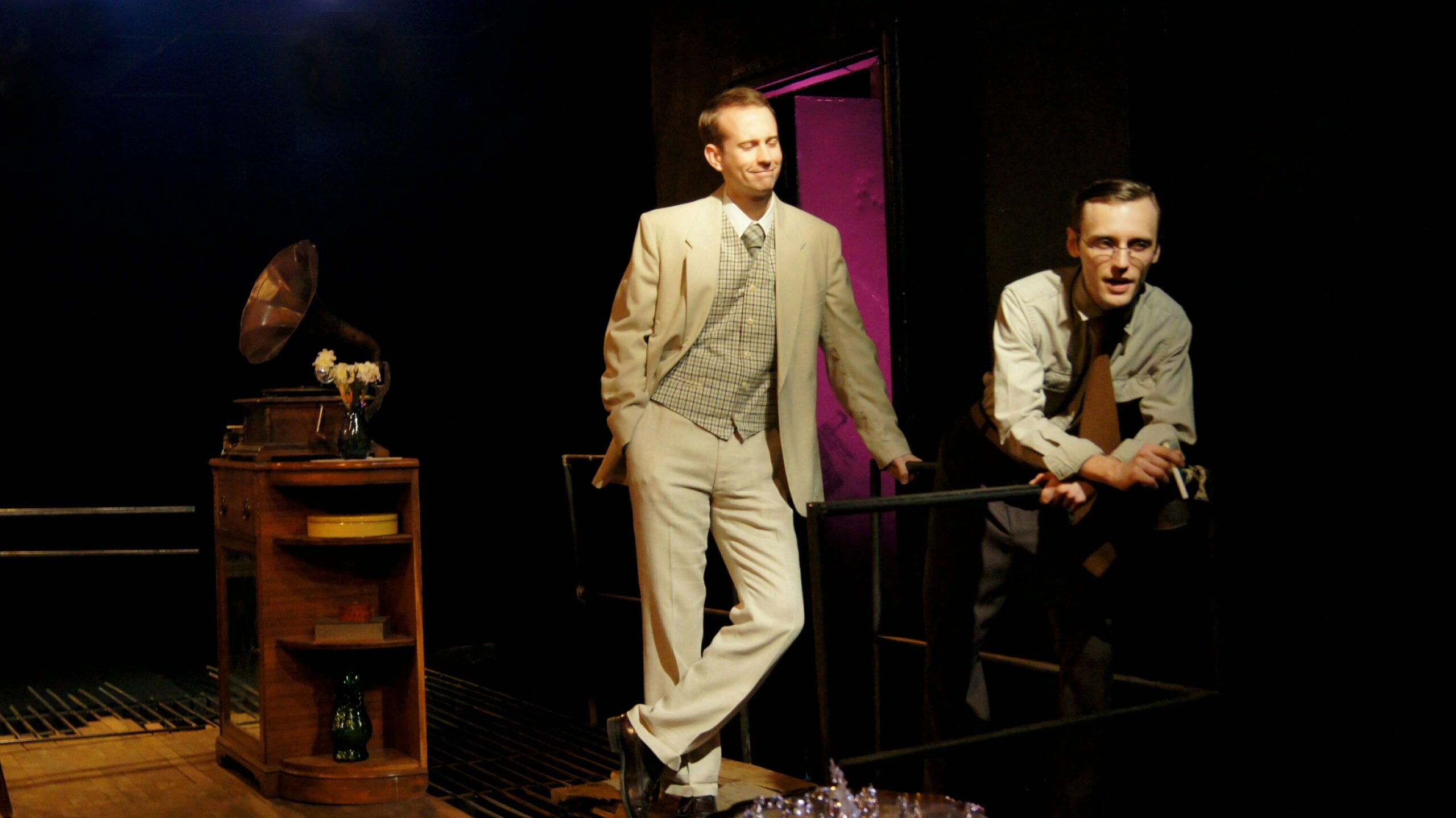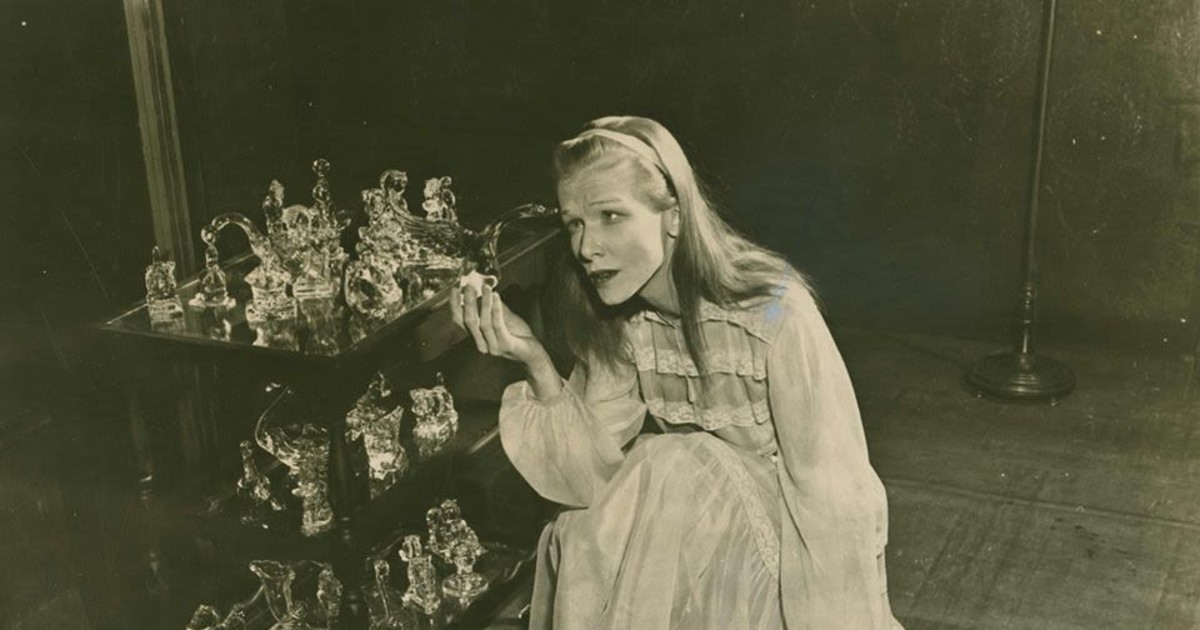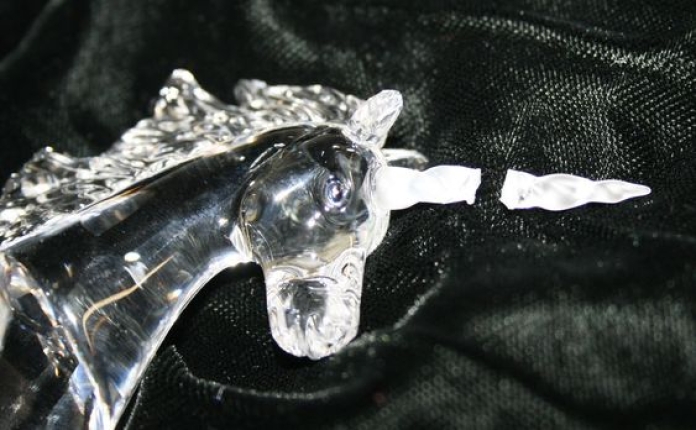By Katerina Taxiaropoulou,
“It’s no tragedy, Freckles. Glass breaks so easily. No matter how careful you are… When you look at a piece of delicately spun glass you think of two things: how beautiful it is and how easily it can be broken.”
—Tennessee Williams, quote from The Glass Menagerie
The bell rings for the third time. The lights go out slowly, as half-finished sentences meet their abrupt ending in a murmur. At the rise of the curtain, the audience is faced with the dark, grim rear walls of the Wingfield tenement. The play’s narrator enters the stage dressed as a merchant sailor. Lighting a cigarette, he sits on the fire escape and speaks: “Yes, I have tricks in my pocket, I have things up my sleeve. But I am the opposite of a stage magician. He gives you illusion that has the appearance of truth. I give you truth in the pleasant disguise of illusion.” (Williams, 752). These opening words set the atmosphere for what is to follow: a misleading representation of reality as it exists in characters’ minds; An assembly of dreams that unfold out of time and space, shaped by faint memory coupled with imagination.
A largely autobiographic work, The Glass Menagerie tells the story of Amanda Wingfield, a character based on Williams’ histrionic mother, and her two children, the mentally fragile Laura and unruly Tom, who are claimed to represent the author’s schizophrenic sister and himself as a young man. Tom is also the narrator of the play, arriving from the future to recall scenes from the family life he left behind.
Produced in an era of rebellion against realism, The Glass Menagerie (1944) lies within the tradition of expressionist theater, whereby the author reflects on moments of the past, “not attempting to write what could be seen, only what he felt” (Styan 4). Looking back at the last tumultuous days he spent in his family home, Williams gives us a rather subjective picture of a 1930s family in a state of financial, social and emotional downfall.
Abandoned by her husband amidst Great Depression, Amanda Wingfield lives with her two children, Laura and Tom, in a dingy apartment in St. Louis and sells magazine subscriptions to make ends meet. Facing such harsh conditions, Amanda “finds solace in the romantic memories of her girlhood”, revisiting the glorious days she spent as a debutante in quiet Blue Mountain, Mississippi (Mambrol 11). Her dream is to have her daughter married to a young gentleman and her son become a respectable breadwinner. As she remains stuck in this old, ideal view of proper life, she cannot recognize the reality of her children, the fact that her son is a poet with no interest in finance, and that her daughter suffers from mental illness. Thus, she pressures Tom and Laura to adjust to her dream of propriety, creating “an unhappy tension in the household and bitter friction” (Mambrol 11).

At the play’s present, Amanda keeps asking Tom to bring home a gentleman caller for his sister. And so he does. The day Jim O’ Connor visits the Wingfield home for dinner, Amanda behaves hysterically, running around to decorate the house, also forcing Laura out of her room and into her mother’s ridiculous, antique dress. When, however, at the end of the night Jim reveals he is about to marry someone else, Amanda’s excitement extinguishes. Laura shuts down again and Tom bursts into anger. He has warned Amanda before how she needs to admit that Laura is different, and that he is miserable in the factory where he is working. Seeing now that she cannot understand, he leaves forever. Like fragile glass, Amanda’s dream of proper life breaks. In a moment of epiphany, she exclaims: “My devotion has made me a witch and so I make myself hateful to my children!” (Williams).
Amanda’s first-born child, Laura, is a young, mentally fragile woman, whom a childhood illness has left with a limp. Self-conscious about her disability, she feels unable to live up to the standards of the outside world, and so she “seeks refuge in her collection of glass animals”, the eponymous glass menagerie (Mambrol 12). Without letting her mother know, everyday Laura skips business school and isolates herself in a room where she spends hours cleaning and looking at her glass ornaments. As it later on revealed, Laura has been infatuated with Jim O’ Connor, her gentleman caller, since their school days, but has never expressed her feelings. Unacquainted with the functions of real human relationships, she bears “a tentative, naive, and unformed dream of love” (Mambrol 10). Thus, upon seeing Jim at her house, her mind becomes filled with visions of romance.

At first, when Jim arrives at their house, Laura is so shy that she cannot utter a word, but only stands there, listening to her mother talk on her behalf. As she does not consider herself worthy of Jim’s attention, let alone his love, she feels humiliated and just wants to hide away. Slowly however, and while Jim shows kindness and genuine interest into her person, Laura starts opening up. She takes him to her private room and shows him the most precious thing she owns, her glass menagerie.
There he invites her to dance with him to the sound of music coming from the street. Although hesitant at the beginning, she joins him in an awkward yet beautiful pas de deux, her figure imbued with a “pristine clarity” similar to that found in “early religious portraits of female saints or madonnas” (Williams). As the stage directions indicate, lighting is specially employed on stage so as to accentuate Laura’s “otherworldliness” (Mambrol 9). It is no surprise that her favourite glass figure is the unicorn, a mythical creature, one that can never exist in the real world.

As they are dancing, Jim and Laura stumble on the coffee table, throwing the girl’s beloved unicorn down. At the sight of its broken horn, Jim is overwhelmed with guilt and hastes to apologize. Much to the audience surprise however, Laura remains calm and consoles him, saying “Now is just like all the other horses… It doesn’t matter. Maybe it is a blessing in disguise” (Williams 780). On a metaphorical level, her romantic interaction with Jim breaks Laura’s girlish fragility and transforms her into a robust and sturdy woman. This rite of passage is completed by their shared kiss. Pulling Laura out of her state of ill isolation and sensitivity, Jim appears as “Christ-like savior figure or…as Moses about to lead the Wingfield family to the promised land of harmony and happiness” (Stein, 141–153). Laura is living her dream.
Only a moment after however, this dream is shattered. Jim reveals that he is about to get married soon and that he sees Laura as a friend only. Following this plot twist, the broken unicorn changes its meaning and now symbolizes “the Wingfields’ combined dreams of escape” (Mambrol 10). Amanda cannot escape low life by having her daughter marry a gentleman. Laura cannot escape illness and loneliness. Finally, Tom cannot escape spiritual stagnation by having someone else take care of his family while he devotes his life to poetry. It is no coincidence that he constantly sits on the fire-escape of his building. His dream is to leave home and lead a life of adventure.
Although he eventually leaves and becomes a celebrated author, Tom cannot escape the memories of the past. Guilt for abandoning his family, especially his sister stays with him. At the play’s closure, the narrator, that is Tom from the future, cries: “Oh Laura, Laura. I tried to leave you behind, but I am more faithful than I intended to be!” (Williams, 784). Like Tom, Tennessee Williams could not forget his beloved schizophrenic sister Rose, whose shattered dreams of normal life kept haunting him. Writing The Glass Menagerie, was a way for Williams to make amends and bid his pain of her farewell:
“Tom: Blow out your candles Laura – and so goodbye.
[She blows the candles out].
The Scene Dissolves”
—Tennessee Williams, quote from The Glass Menagerie
References
- Mambrol, Nasrullah. Analysis of Tennessee Williams’s The Glass Menagerie. literariness.org Available here
- Styan, J. L. Expressionism in the theatre. Cambridge University Press. 1981. Available here
- Stein, Roger B. “The Glass Menagerie Revisited: Catastrophe without Violence,” Western Humanities Review, vol. 18, no. 2, 1964, pp. 141–153.
- Williams, Tennessee. The Glass Menagerie. New Directions. 1999. Available here




